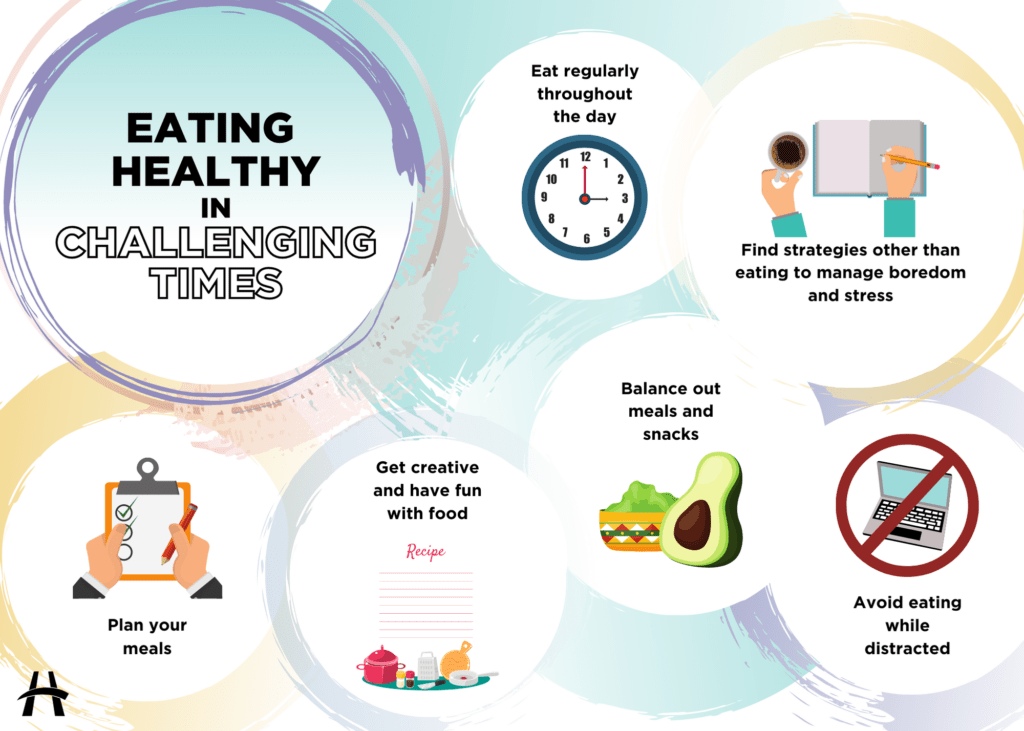A Guide to Healthy Eating
It is no secret that what you eat has a direct impact on your health. Eating a healthy diet is one of the most important things you can do to reduce your risk of developing heart disease, high blood pressure, type 2 diabetes, osteoporosis and certain types of cancer.
The good news is that making healthy food choices is not as difficult as it may seem. By following a few simple tips, you can create a healthy eating plan that is delicious, nutritious and easy to stick to.
What is a healthy diet?
A healthy diet is one that:
Emphasizes fruits, vegetables, whole grains and low-fat dairy
Includes lean protein sources such as fish, beans and tofu
Limits saturated and trans fats, added sugars and sodium
Provides adequate calories and nutrients to support a healthy weight and active lifestyle
Why is a healthy diet important?
Eating a healthy diet has many benefits, including reducing your risk of developing chronic diseases such as heart disease, stroke and type 2 diabetes.
A healthy diet can also help you to:
Maintain a healthy weight
Reduce your risk of developing certain types of cancer
Promote bone health
Reduce your risk of developing osteoporosis
Improve your mental health
Increase your energy levels
Improve your digestion
What are the guidelines for a healthy diet?
The 2015-2020 Dietary Guidelines for Americans provides evidence-based recommendations for a healthy diet. These guidelines are designed to help Americans choose a diet that promotes health and reduces their risk of developing chronic diseases.
The guidelines recommend that Americans:
Consume a variety of nutrient-dense foods and beverages
Limit calories from added sugars and saturated fats
Reduce their sodium intake
Shift to healthier food and beverage choices
Support healthy eating patterns for all
The guidelines also recommend that Americans:
Choose foods and beverages in moderation
Limit alcohol consumption
Make sure they are meeting their nutrient needs through food and beverages
What are some tips for following a healthy diet?
There are many small changes you can make to your diet that will add up to big health benefits. Here are a few tips to get you started:
1. Fill half your plate with fruits and vegetables
Fruits and vegetables are packed with nutrients that are essential for good health. Aim to fill half your plate with fruits and vegetables at every meal.
2. Choose whole grains
Whole grains contain more fiber and nutrients than refined grains. When choosing grains, look for the word “whole” on the label, such as “whole wheat” or “whole grain.”
3. Limit saturated and trans fats
Saturated and trans fats can raise your cholesterol levels and increase your risk of developing heart disease. To limit your intake of these unhealthy fats, choose lean protein sources, such as fish, tofu and beans, and low-fat dairy products. Avoid processed meats, such as bacon and sausage, and foods that are high in saturated and trans fats, such as cookies, cakes and fried foods.
4. Reduce your sodium intake
Eating too much sodium can raise your blood pressure levels and increase your risk of developing heart disease. To reduce your sodium intake, limit your use of salt and choose foods that are low in sodium, such as fresh fruits and vegetables. You can also look for foods that are labeled “low sodium” or “no salt added.”
5. Get enough calcium
Calcium is important for bone health. To make sure you’re getting enough calcium, choose low-fat or fat-free dairy products, such as milk, yogurt and cheese. If you don’t like dairy products, you can get calcium from broccoli, kale and other calcium-rich foods.
6. Drink plenty of water
Water is essential for good health. Drinking plenty of water can help you to stay hydrated and to flush toxins out of your body.
7. Limit your alcohol intake
Drinking alcohol in moderation can have health benefits, but drinking too much alcohol can be harmful. If you choose to drink alcohol, limit your intake to one drink per day for women and two drinks per day for men.
8. Be physically active
Physical activity is an important part of a healthy lifestyle. It can help you to maintain a healthy weight, reduce your risk of developing chronic diseases and improve your overall health. Aim for at least 30 minutes of moderate-intensity physical activity on most days of the week.
Making healthy food choices
